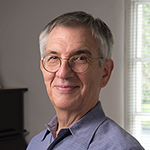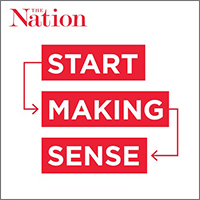 LISTEN online HERE — iTunes podcast HERE
LISTEN online HERE — iTunes podcast HERE
How the Supreme Court Protects Bad Cops: ERWIN CHEMERINSKY says the Court has created “often insurmountable obstacles” to justice for victims of police abuse. Erwin is founding dean of the law school at UC Irvine and wrote about bad cops for the New York Times op-ed page.
 Also: despite the suffering and misery in Gaza, Syria, Egypt and elsewhere in the Mideast, JUAN COLE says, a new generation of Arab men and women are using innovative notions of personal rights to challenge the authoritarianism, corruption, and stagnation that had afflicted their societies. Juan’s new book, The New Arabs, offers a provocative and optimistic argument about the future of the Arab world.
Also: despite the suffering and misery in Gaza, Syria, Egypt and elsewhere in the Mideast, JUAN COLE says, a new generation of Arab men and women are using innovative notions of personal rights to challenge the authoritarianism, corruption, and stagnation that had afflicted their societies. Juan’s new book, The New Arabs, offers a provocative and optimistic argument about the future of the Arab world.
.
 Plus: How the black community of Ferguson, Missouri have shed their fear and asserted their humanity in ways big and small, beautiful and ugly: GARY YOUNGE was an eyewitness. He writes for The Guardian and The Nation—and he will be talking about his book The Speech: The Story Behind Dr Martin Luther King Jr.’s Dream at Esowon Books on Sept 9, next Tues, at 7pm –4327 Degnan Boulevard in Liemert Park.
Plus: How the black community of Ferguson, Missouri have shed their fear and asserted their humanity in ways big and small, beautiful and ugly: GARY YOUNGE was an eyewitness. He writes for The Guardian and The Nation—and he will be talking about his book The Speech: The Story Behind Dr Martin Luther King Jr.’s Dream at Esowon Books on Sept 9, next Tues, at 7pm –4327 Degnan Boulevard in Liemert Park.
 LISTEN online
LISTEN online  Plus: The surprising history of women’s movements – and what’s wrong with telling women to “Lean In” and be more confident: historian
Plus: The surprising history of women’s movements – and what’s wrong with telling women to “Lean In” and be more confident: historian  LISTEN online
LISTEN online Plus: This month is the 100th anniversary of the start of WWI--we’ll speak with historian
Plus: This month is the 100th anniversary of the start of WWI--we’ll speak with historian  Also:
Also:  To celebrate the fortieth anniversary of Nixon’s resignation, we talked with John Dean—his new book is The Nixon Defense: What He Knew and When He Knew It.
To celebrate the fortieth anniversary of Nixon’s resignation, we talked with John Dean—his new book is The Nixon Defense: What He Knew and When He Knew It. LISTEN online
LISTEN online  Plus: To celebrate the 40th anniversary of Nixon’s resignation, we feature
Plus: To celebrate the 40th anniversary of Nixon’s resignation, we feature  Also:
Also:  LISTEN online
LISTEN online  Also:
Also: 
 Also:
Also:  LISTEN online
LISTEN online  Plus: Gay marriage is legal in more states every day. Does that mean the LGBT equality movement is almost over?
Plus: Gay marriage is legal in more states every day. Does that mean the LGBT equality movement is almost over? 
 LISTEN online
LISTEN online 
